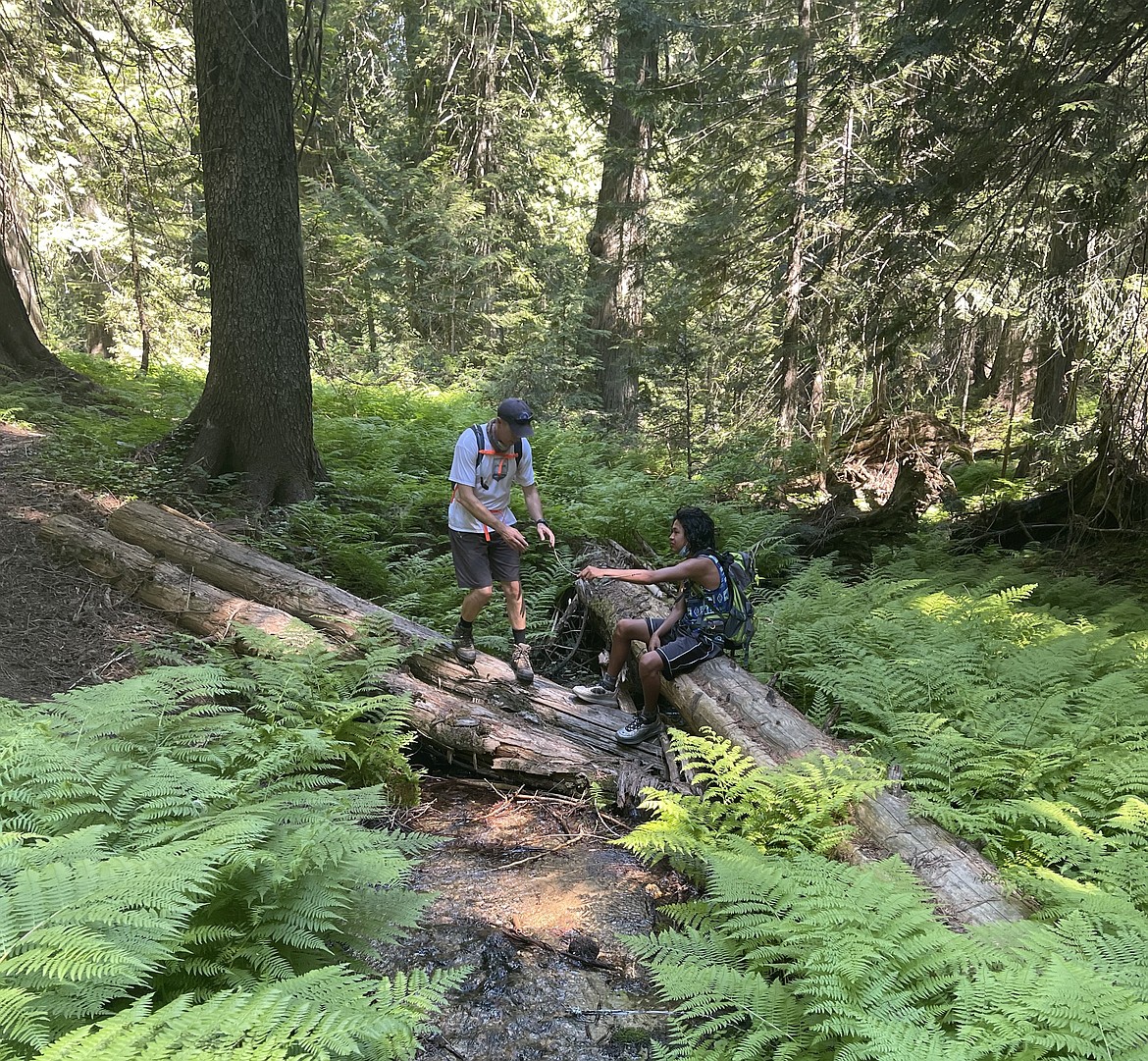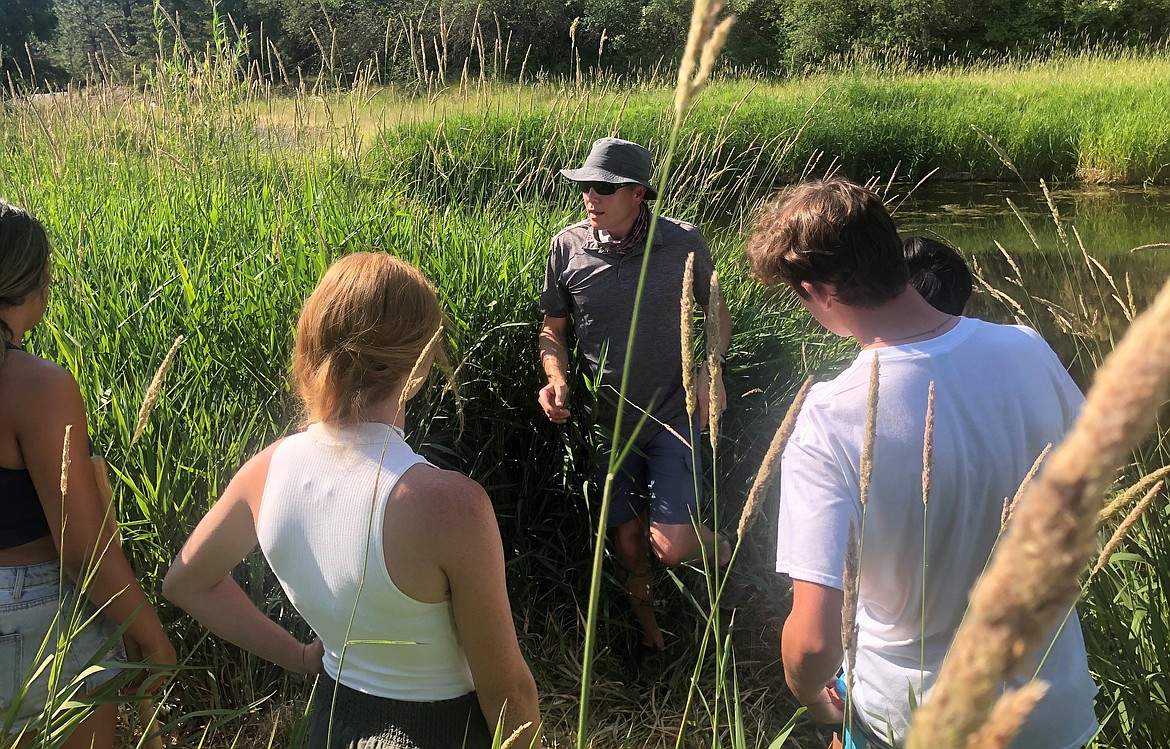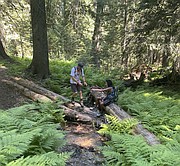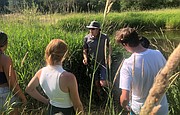Climate Explorers
For three weeks during the summer, 15-year-old Chief Allan grew closer to the land of his ancestors.
“One of the things I remember that was really cool was digging camas roots, which is a plant that is important to the Coeur d’Alene people. We even got to taste some of it,” he said, describing the root as “potato-y.”
“I’ve never been involved in that stuff,” he said. “It helped me connect more with the Coeur d’Alene Tribe.”
The Coeur d’Alene High School freshman was one of nine youths to participate in the pilot Climate Explorers Summer Youth Internship program, eight of whom are Tribal members or descendants. “Climate” is an acronym for “Connecting with our Land, Integrating Modern and Traditional Epistemologies.”
The program had three overarching goals:
• For youth to connect historical and contemporary uses of math and science to the protection of their lands and water as affected by climate.
• For youth to develop a deeper relationship with their homeland through land-based learning, and to understand how legal and political policies impact its environmental health.
• For youth to establish community observation sites and learn how to effectively communicate data through geographic information system-based story maps.
“All these internships focus on Tribal values and core beliefs: membership, stewardship, guardianship, spirituality and scholarship,” Chief Allan said. “I feel like they’re really applying them so the youth can grow up with them. It will benefit us in the future.”
The pilot project was made possible with funding from the Kootenai County Task Force on Human Relations, which awarded nearly $7,000 for Climate Explorers after receiving a grant proposal from Chris Meyer, executive director of the Coeur d’Alene Tribe’s Education Department, and Coeur d'Alene Tribe climate research and policy analyst Laura Laumatia.
“The partnership itself was so wonderful because it gave us free rein to describe what the Tribe wanted, and that was to develop a connection between the young people and their landscape,” Laumatia said.
Funding also allowed organizers to buy hiking socks and boots, backpacks, safety equipment, two digital microscopes and water quality field kits for the students, as well as snacks and lunches.
“It was such a wonderful success,” Task Force secretary Tony Stewart said of the pilot program.
Supporting Climate Explorers is just the start of a “new dimension” into which the Task Force will be expanding, Stewart said.
“We’re going to start giving grants to human rights groups,” Stewart said. “We’re just broadening out and we’re excited to do that.”





